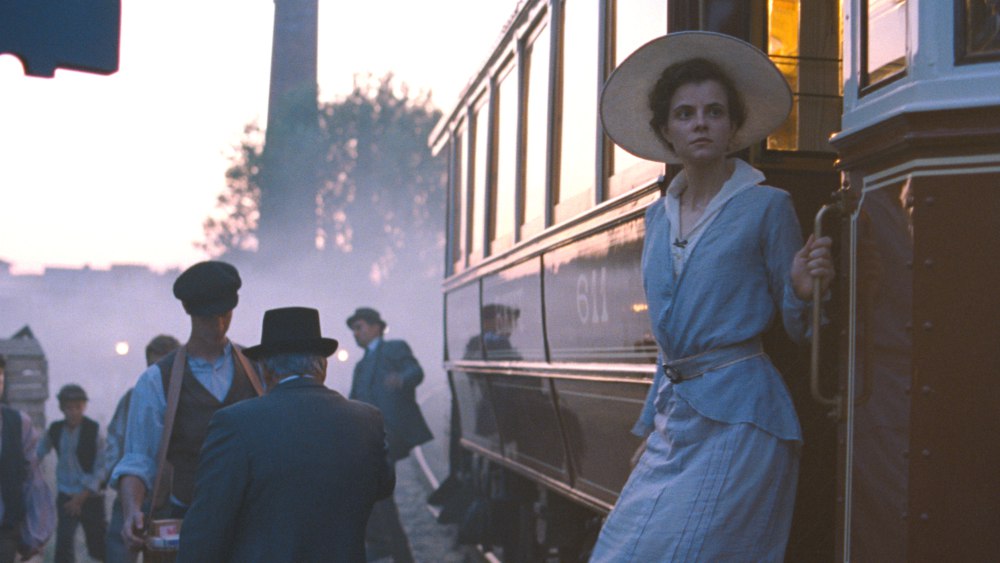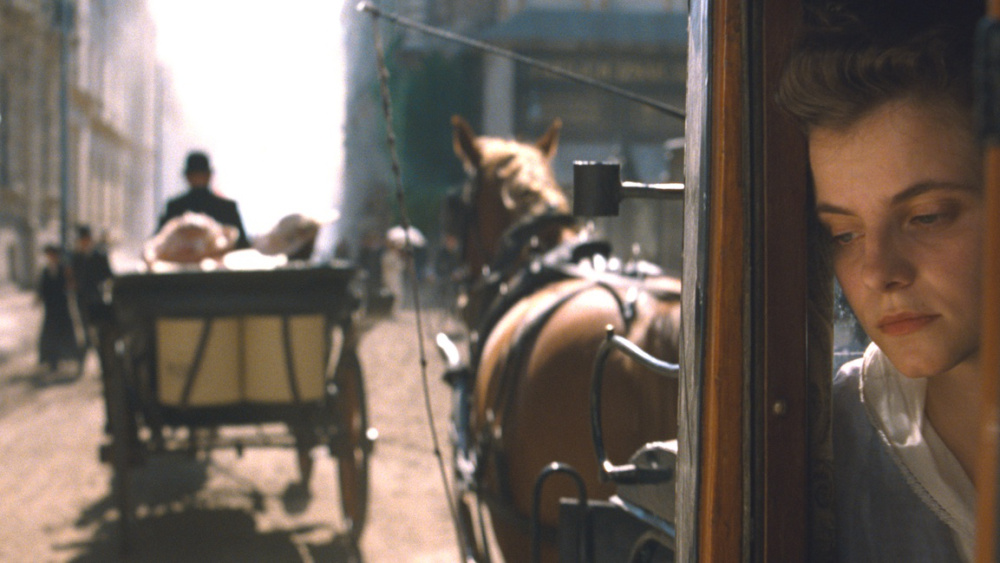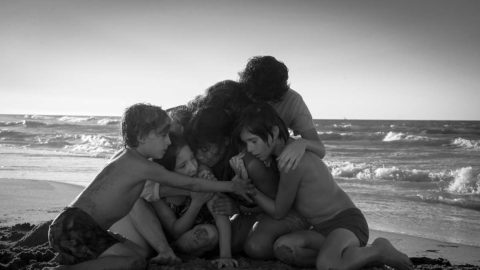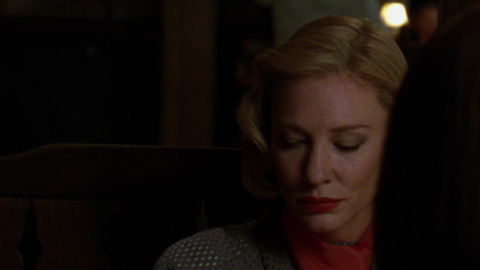Venice Film of the Week: Sunset

Talk about “immersive cinema,” and you’re usually referring to an experience in which it’s implicit that the viewer allows themselves to be engulfed—carried away on an overpowering sensory flow, suspending their critical faculties entirely. This isn’t the case with the cinema of Hungarian prodigy László Nemes. His cinema is certainly immersive, plunging us, and its protagonists, into breakneck torrents of incident which often make it very hard to keep afloat; but keep afloat we must, staying as alert as possible to make sense of what’s happening before our eyes (or sometimes concealed from them).
In Son of Saul, Nemes’s extraordinary, much-debated 2015 debut feature, we needed to keep our perceptions keenly focused in order to understand our response to the ethical compromise of the central character. He was a Jewish-Hungarian prisoner in Auschwitz who had been enlisted as a Sonderkommando member, performing daily work for the camp authorities—in other words at once a victim of the Holocaust, and an instrument of it.
In Nemes’s second feature Sunset—arguably the most audacious film in this year’s Venice Film Festival—it’s not the moral situation of the heroine that we’re invited to assess, but something more fundamental. Sunset challenges us from start to finish simply to make head or tail of what’s going on. Set in 1910s Budapest, second city to Vienna in the Austro-Hungarian Empire, Sunset altogether wrong-foots us from the start: under the opening credits, the city is seen as in a decorous postcard drawing, the colors changing as the city passes from day to night. We then watch a beautiful young woman being fitted with a series of magnificent hats, one after the other, by attentive shop assistants; much white lace is evident. We’ve clearly walked into some sedately gorgeous Belle Époque romance; can it be long before the Fräulein is courted by some dashing officer with jingling spurs?
But this is not the film we initially think—as the young woman promptly informs the assistants. She hasn’t come to the milliner’s to be fitted with hats, but to apply for a job. The women look at her askance—and stand back in horror when she mentions her name, Leiter. Indeed, the name acts as a sort of magic charm throughout Sunset, sparking excitement, causing people to bristle with contempt, even causing riots; you could almost say the word is the only constant in the film.
The young woman (played by newcomer Juli Jakab) is Irisz Leiter and shares her name with the opulent emporium. She’s the daughter of the couple who founded the business, and who died in a fire years earlier; she had grown up in an orphanage, and her one dream since then has been to practice the milliner’s trade in the old family company. The business is now in the hands of a suave businessman named Brill (ubiquitous Romanian actor Vlad Ivanov), who welcomes her courteously, but firmly lets her know that her services in the shop won’t be required. Everyone seems somehow repelled and terrified by her presence, and it’s clearly because of the stakes of her return: she’s like a dispossessed princess come to wreak vengeance and to reclaim her lost kingdom.
Leiter insists that Irisz go straight back to Trieste, but she decides to stick around. Things quickly get complicated, and nowhere near as decorous as the opening scenes suggest. Irisz is menaced in her Spartan lodgings by sinister coachman, and finds out that she has a brother she never met. Setting out to find traces of that brother, Kalman, she embarks on a sleuthing odyssey as inscrutably byzantine as The Big Sleep, and every bit as dreamlike. And all the time, Jakab’s eyes remain wide open, with a piercing gaze, as if she were actually trying to drill through the obscurity of the plot, and of the Budapest night.
We discover that Kalman is responsible for the death of a certain Count Redey, whose wife, a stately black-clad figure, at one point staggers up to Irisz and gives her a fearsome glare of her own. Irisz rides a tram to the very end of the line, on the edge of town, where she tries to enter some sort of music hall called “the Sphinx,” but learns that only men are allowed in. The Sphinx is simply a more overtly patriarchal domain than Leiter’s, which is ostensibly a female place but one that turns out to obscurely serve a powerful male order—and not just in terms of prettifying the wives and daughters of notables.
Irisz’s quest takes her on a hectic, often bewildering ride: blink (as Jakab seems never to do) and you’ll miss the chain of events that lead us to find her all of a sudden rowing across a river, trying to escape from a bearded man whom she then clubs brutally with her oar. In Irisz’s adventure, things just happen—out of the blue, or rather the murky brown and black—with the abruptness of nightmare. The narrative bowls along at breakneck pace, events erupting, only to be succeeded by other explosive events, with the logic of a hectic fugue. Sunset could be, and already has been, compared to the European fiction of this place and era, to Joseph Roth’s The Radetzky March, his 1932 novel that addresses this period, or to Arthur Schnitzler’s hallucinatory 1926 Dream Novella (the source of Kubrick’s Eyes Wide Shut). But perhaps closer comparisons would be with the new discontinuities of this era’s modernist music, to Bartok or Schönberg. In its sweeping energies, you could certainly call Sunset a “Symphonie Fantastique.”

Sunset is historical fiction as phantasmagoria—a whirlwind of incident, involving conspiracy and criminal actions in society high and low. Sinister monocled grandees feature, as do nocturnal, brutal men of the streets: Irisz faces sudden violence, people jump out of windows, and sometimes crawl in through them. It feels like a Mitteleuropean equivalent of Balzac’s or Eugène Sue’s elaborate exposés of Paris as a city of politics and crime, a Mysteries of Budapest. And of course, the action takes place only a few years away from Fritz Lang’s silent dramas of cloak-and-dagger conspiracy, and contemporaneously with Feuillade’s Fantômas.
Nemes, co-writing with Clara Royer and Matthieu Taponier, piles enigma on enigma, but the action wheels too fast, and is presented too disorientingly for us to really be sure what’s happening—or to know for sure whether Irisz herself is any further ahead of the game. We never quite know where we are, in terms of either time or place: combining long fluid takes with disorienting cuts, Nemes follows Irisz around the city and to its outskirts, travelling on coaches and trams, and always seeming to reach her destination almost instantly, as if the whole of Budapest were simply a set of locations arranged around the edge of a city square.
Sunset is possibly the most disorienting and obscure—make that “exhilaratingly obscure”—narrative film since Alexei German’s Khrustalyov, My Car!, and the comparison lies partly in the way that Nemes saturates the screen with movement and detail, but often makes it impossible to read what he’s showing us. As in Son of Saul, there’s always a lot going on: the crowds at a railway station, parades, military detachment on horseback, dancers waltzing at a ball. And, as in Son of Saul, the camera tends to cleave so tightly to the protagonist—Jakab often framed head and shoulders, at center screen—that background events are often blurred, allowing us a sense of what’s there, but never a clear one.
This effect served a certain purpose in Son of Saul, at once making us aware of the atrocities of Auschwitz and alerting us to the obscenity it would have been to show us too clearly the world around Saul. In Sunset, the effect is totally different, and on one level narcissistic. No doubt, this technique allows Nemes to stage the splendor of the Empire more economically than might have been possible in a conventional film with wide shots, but there’s no doubt whatsoever that Nemes has spared no expense, or at least no effort, in filling in the background of Irisz’s world so exhaustively. We become aware that he’s furnished this world ostentatiously—and he comes across as even more flamboyant a showman because he chooses to keep the spectacle partly under wraps. In one shot, seen in the background as Irisz travels through town, we know that a vista of Budapest is there—yet it’s left totally in soft focus. It’s almost as if Nemes is establishing an aesthetic of conspicuous waste, as if this were something that only the grandest, and most cavalier, of impresarios could possibly do.
But then the narrative is about ostentatious display, and concealment: as someone puts it, regarding the Leiter hats, “The horror of the world hides beneath these infinitely pretty things.” Ceremony is infinitely important in this world, a protocol verging on madness. A prince and princess from Vienna come to the hat shop and attend a ceremony in which a bricked-up backroom is opened up, like a secret chamber in the Great Pyramid; it’s a room in which the revered Sissi, the late Empress Elisabeth of Austria, once lost a hairpin. And it’s clear what one of the world’s horrors is: one of the hat shop workers will be picked out as the “chosen” girl, and specially honored by being sent to the court in Vienna. For what purpose? We can guess: in 19th-century Europe, the millinery and couture trades were closely linked with prostitution, and this no doubt carried on into the new century. But this theme seems in turn to cover up something much darker: the film’s most unsettling moment, and it’s hard to know quite why, comes when Irisz is presenting herself before the Prince, seated in all his formal finery, and the camera tilts down to show his bare feet sunk in a deep rug.
Everything in the narrative converges towards a single moment, the grand finale of the celebration of the 30th anniversary of the Leiter shop—a culmination we can expect to be apocalyptic. It proves to be more than that, as the coda suggests. This is where Nemes’s extravagance vaults onto a new level of chutzpah, in a brief coda that will leave you captivated, or grinding your teeth. This time Nemes mounts a tableau only too familiar from history, and from countless historic dramas, and he does it all for the sake of a single tracking shot. The final effect could easily be taken as bathetic—the preceding two-hours-plus of spectacle just to tell us that the First World War happened because of shenanigans in a hat shop? But the absolute payoff is a final gimlet glare from Jakab, this time right to camera, which might to all intents be telling us to go and watch Sunset again. Personally, I cannot wait.
Jonathan Romney is a contributing editor to Film Comment and writes its Film of the Week column. He is a member of the London Film Critics Circle.







